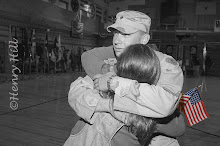USS Arizona exploding




On this most reverent day, December 7, I would like to inform all survivors that have participated in the project that your stories have come together in a most wonderful way, as they encompass a very important event in our country’s history.
These stories collectively represent not only the survivor telling their personal story, but all the stories that never will fill a page, never to be passed on, as those so silenced on that day were denied life beyond their moment that day. The day was December 7, 1941.
Each survivor told me about that day, the day that he or she saw through his or her own eyes and actions. The survivors are diverse, but shared that day with a commonality that bonded them together for life. This bond would be as tight as strangers can get in some cases, and only understood by those who came to it by way of the fire. They come not from one branch of the services, but from the many. They served at various facilities around Oahu, from Pearl Harbor to Kaneohe Bay, and all in between. Rank did not matter to me as I located and interviewed survivors, it did matter to the bombs that fell, or to the bullets fired upon them; from Seaman or Private to Officer, they were all at risk. So many across the ranks died that day, without mercy or segregation ... death comes blindly in a surreal sense of equality.
It was not easy for most of them to tell their stories, as tears came with the words from remembrance. There were days when I saw a smile reflecting good times with good friends from a very long time ago. For many, telling their story was not possible for the first 50 years after the war, but time has worked in two ways in that regard. Some, now seeing their mortality before them wants people to know what happened, as they know it. Others let their story become a part of their healing after holding it in for so many years. Looking into some of their eyes and feeling their pain, and their happy times, was quite frankly overwhelming on some days. Some stories were almost too sad to tell, but not telling it would be dishonest, disingenuous, and disrespectful to the ones who lived it, or died because of it.
Hero is a word that may be used too freely by those who have never had to bear witness to a real war; to feel a good friend die in their arms, to smell death, or wonder why they survived the brutal and merciless chaos.
Most who may be called that name, deny it.
Musician 1st Class Petty Officer Albert, who served onboard the battleship, USS Pennsylvania, said this when I mentioned the word,
“We weren’t heroes, we didn’t do anything heroic, and we really didn’t do anything but do the job that we were trained to do.”
Chief Naval Ordinanceman Finn, a recipient of the Medal of Honor, for his actions at Kaneohe Bay air station, said,
“Hell, you are making me sound like some Hero. I was just there!”
Volunteer Nurse Lieutenant Watson, who was stationed at Schofield Barracks station hospital, said,
"I just happened to be in a position of seeing the Japanese planes approaching, then seeing the slaughter in the aftermath of the attack."
Seaman Quartermaster Striker Bruner, stationed on the battleship Oklahoma said,
“It was not long after the torpedo hits that the ship started listing. It is sort of hard to judge time, but when it did start listing a lot of stuff began to come loose. We had spare parts and things that were bolted down, but that is the stuff that was now coming loose, breaking and falling everywhere; I never heard such a noise in my life.”
Staff Sergeant Dunn, flight engineer on one of the B-17 bombers, said,
“We heard the crackle of machine gun fire, and then saw tracers as they started bouncing off the runway all around us, so we just went down flat on the runway. Lying there scared as the dickens while strafing rounds bounced around all of us, all of a sudden I heard a strange noise. One of the large empty brass cases, probably 20mm, had bounced next to me.”
1st Class Machinist Mate Sawick, PT Boat commander, said,
“The California was the first battleship that we saw get hit, then the Arizona, we saw the Oklahoma roll over, we had a good view of all of it as that huge ball of flame went up from the Arizona. We were just sitting there, only 300 yards or so away, it was like watching a movie.”
Seaman 1C Hedley who stationed on the battleship West Virginia, said,
“I grabbed my hat, I ran out on topside, and we had a 40 mm cannon set up off the deck. I dove under that gun tub, and our pilot Lt. White was shooting at airplanes with a .45 pistol! I was wondering, what kind of a war is this?”
Most of the survivors will tell you that the real heroes are the ones who cannot tell their story, and did not make it back home. They now tell you their stories to Honor those heroes who gave their lives for their buddies, while fighting for their country. Reading their stories as told through their eyes may cast a little light on that day, one perspective at a time, one life at a time, from one small world that was right before them on that day. Some of these stories have lived as a nightmare when the fearful night would come to so many. Some of these nightmares have never seen the light of day, various reasons notwithstanding, they now live to tell a story of what happened to them in those early morning hours; these hours defined the rest of their lives.
Any fool can be an expert in retrospect. I am not an expert; I was not there. I can only pass along the stories of those who were, with respect, and to honor those heroes who never had a tomorrow.
Henry Hill



No comments:
Post a Comment